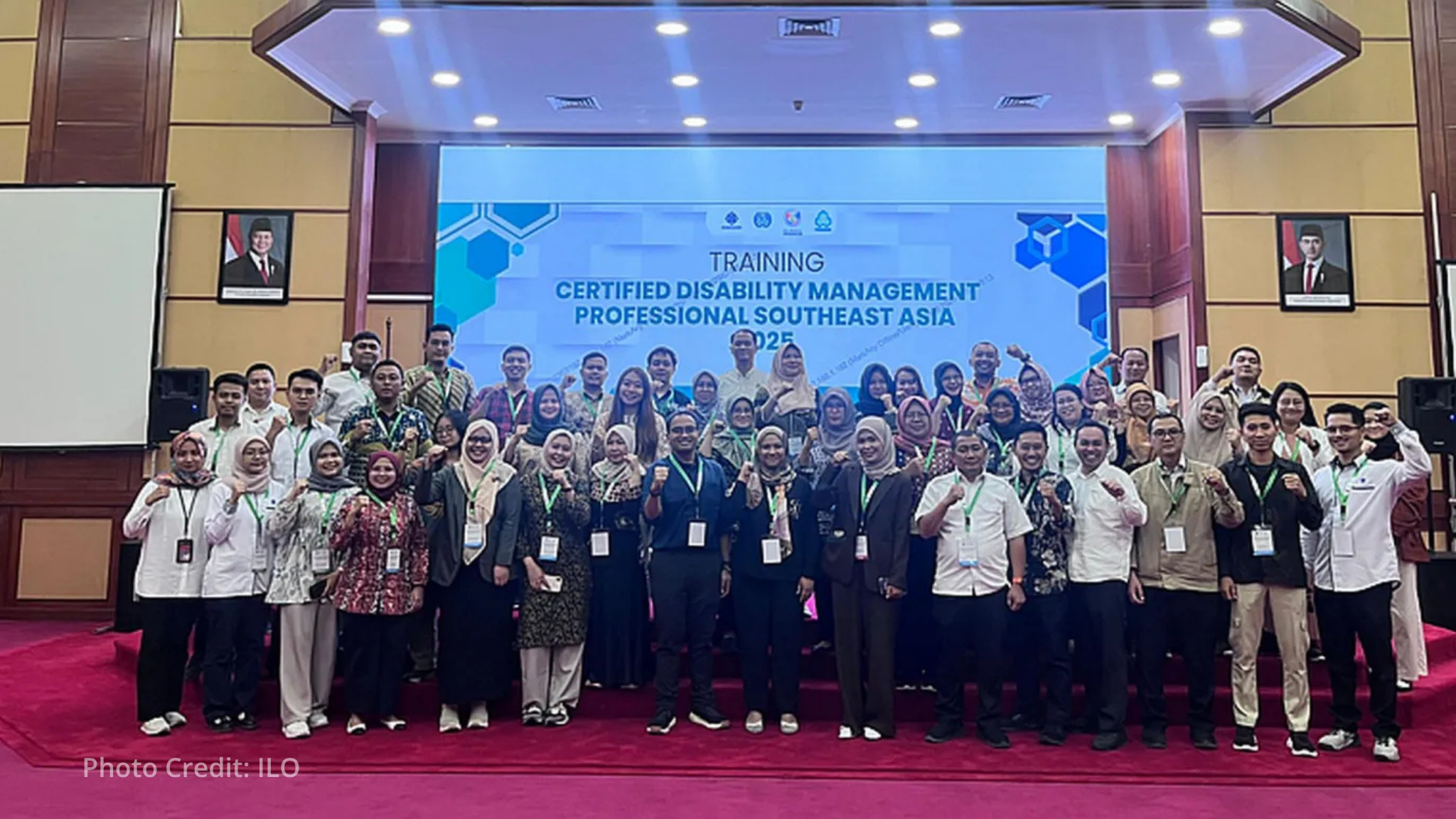Indonesia trained 33 public employment service officers to better help people with disabilities find jobs after International Labor Organization (ILO) statistics showed only 18.7% of disabled people are employed, according to an ILO. The rate drops to just 13.5% for women with disabilities, and 91% of employed disabled people work in the informal sector compared to 81% of the general population.
The ILO’s Global Accelerator on Jobs and Social Protection for Just Transitions partnered with Indonesia’s Ministry of Manpower for a seven-day Certified Disability Management Professional training in July. Nineteen participants from eight provinces earned their CDMP certification in September, with six scoring above 70% and earning trips to study Malaysia’s rehabilitation centers. The program aims to break down barriers that keep disabled people from finding decent work.
Indonesia struggles with massive employment gaps for vulnerable groups, especially people with disabilities. Most disabled workers end up in informal jobs without benefits or job security. Public employment service officers play a key role in connecting job seekers with employers, but many lack training on disability inclusion and accommodation needs. The certification program used standards from Canada’s National Institute of Disability Management and Research.
“As part of this commitment, we are equipping our public employment service officers to deliver inclusive employment services in line with constitutional principles,” said Darmanwansyah, Director General for Labour Placement and Employment Expansion at the Ministry of Manpower. The training inspired officers to become advocates for inclusive hiring. “The training has prompted me to reflect on how we can enhance support through initiatives like inclusive job fairs and business matching programmes for persons with disabilities,” said Nikira Dewati, a public employment service officer. ILO specialist Diego Rei called Indonesia “a pioneer country” in the Global Accelerator program.
Officers plan to use their new skills to create inclusive job fairs and business matching programs for disabled job seekers. Some will become disability focal points within government agencies to mainstream disability issues in policies. The two-year certification requires continuing education credits for renewal.
Indonesia’s approach could serve as a model for other countries trying to improve employment opportunities for people with disabilities through better-trained public employment services.

